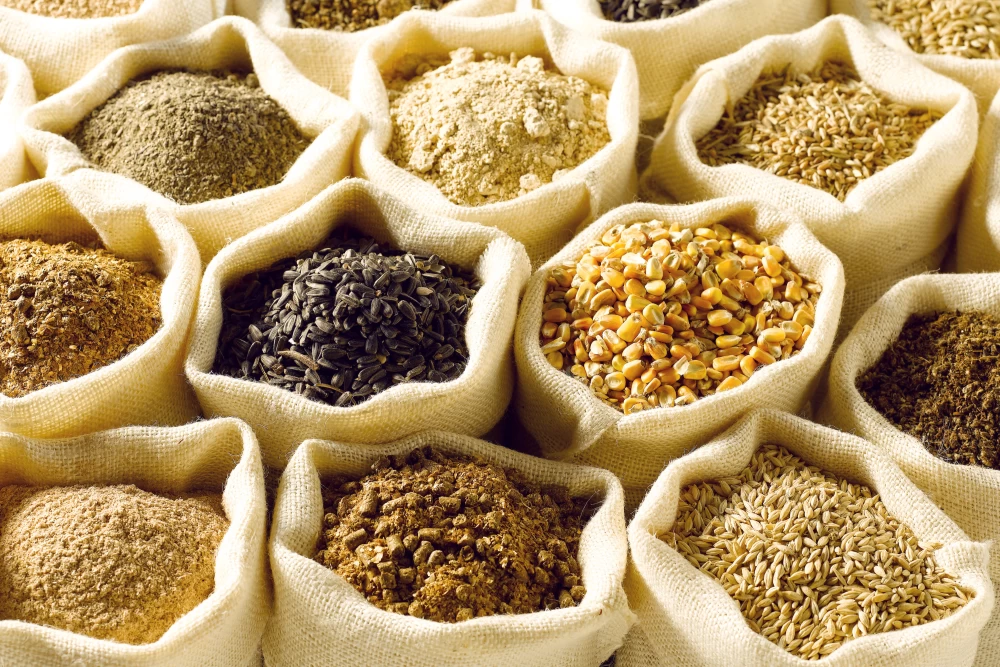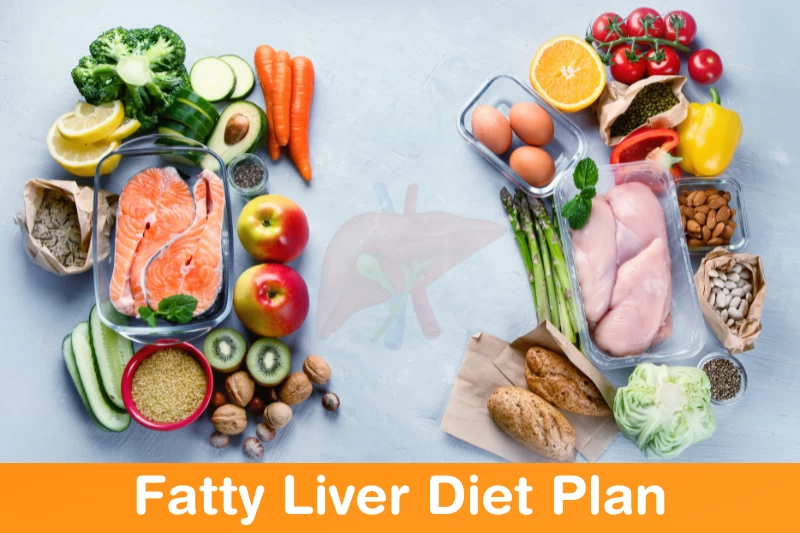
- 25th March 2023
Table of Contents
Fatty Liver and Grains
Grains are a staple food in many diets, but they may be contributing to the development of nonalcoholic fatty liver disease (NAFLD). This condition occurs when there is an accumulation of fat in the liver not caused by alcohol consumption. Grains such as white bread, pasta, and rice have a high glycemic index, meaning they cause a rapid spike in blood sugar levels. This can lead to insulin resistance and an increase in fat storage. Studies have shown that reducing grain intake can improve NAFLD symptoms. However, it's important to note that not all grains are created equal. Whole grains such as quinoa, brown rice, and oats contain fiber which slows down the absorption of glucose into the bloodstream. This helps regulate blood sugar levels and reduces the risk of developing NAFLD. It's crucial to maintain a balanced diet to prevent NAFLD from progressing into more severe conditions like cirrhosis or liver cancer. Incorporating whole grains while limiting refined grains can help promote liver health and overall wellbeing.
What is Fatty Liver?
Fatty liver disease is a medical condition characterized by the accumulation of fat in the liver cells. It occurs when the liver cannot break down fats efficiently, leading to their buildup in liver cells. The two types of fatty liver disease are alcoholic fatty liver disease (AFLD) and nonalcoholic fatty liver disease (NAFLD). AFLD is caused by excessive alcohol intake, while NAFLD results from factors such as obesity, insulin resistance, high blood sugar levels, and high triglycerides. Grains are a significant source of carbohydrates that provide energy to the body. However, consuming grains in large quantities can lead to an increase in blood glucose levels and insulin resistance. This can cause fat storage in the body including the liver resulting in nonalcoholic fatty liver disease (NAFLD). Reducing carbohydrate intake through moderation or switching out refined grains for whole grains can help prevent or manage NAFLD by reducing inflammation and insulin sensitivity. In conclusion, Fatty Liver Disease is a potentially harmful condition that requires early detection and management. A balanced diet with moderate grain consumption may help reduce the risk of developing this condition by keeping blood glucose levels under control. Additionally, it’s important to be mindful about carbohydrate intake so as not to overload your system with excess sugars which contribute to fat storage in organs like the liver.
Causes and Symptoms of Fatty Liver
Fatty liver, also known as hepatic steatosis, is a condition where excess fat accumulates in liver cells. This can occur due to various reasons such as obesity, high blood sugar levels, insulin resistance, and excessive alcohol consumption. The symptoms of fatty liver are often mild and may include fatigue, weakness, and discomfort in the upper right abdomen. In addition to these symptoms, fatty liver can lead to several health problems if left untreated. For instance, it can cause inflammation in the liver leading to non-alcoholic steatohepatitis (NASH), which is a more severe form of fatty liver disease. NASH can eventually progress into cirrhosis or even liver cancer if not addressed promptly. Moreover, there are other factors that can contribute to the development of fatty liver besides those mentioned earlier. One such factor is grains consumption. Grains are rich in carbohydrates that get broken down into glucose during digestion leading to an increase in blood sugar levels. High blood sugar levels trigger insulin production which promotes fat storage within the body including the liver leading to hepatic steatosis over time.
Role of Grains in Fatty Liver Disease
Grains are a significant source of carbohydrates, fiber, and various micronutrients. However, in individuals with fatty liver disease (FLD), grains can be a double-edged sword. The type and amount of grain consumed can significantly impact the progression of FLD. Whole grains such as oats, quinoa, barley, and brown rice are rich in essential nutrients that support liver health while also aiding weight loss. On the other hand, refined grains such as white bread and pasta have little nutritional value and can lead to weight gain. It's important to note that people with FLD should monitor their carbohydrate intake as it can worsen insulin resistance leading to further fat accumulation in the liver. A low-carbohydrate diet may be beneficial for individuals with FLD by regulating blood sugar levels and promoting weight loss without compromising nutritional needs. Therefore it is recommended that FLD patients consume whole grains in moderation as part of a balanced diet while limiting or avoiding refined carbs altogether. In conclusion, consuming whole grains in moderation is crucial for maintaining good health while managing fatty liver disease. Choosing high-quality carbohydrates from whole foods like fruits, vegetables, legumes along with moderate consumption of whole grain options is an ideal way to ensure optimal nutrition without aggravating FLD symptoms further.

Types of Grains to Avoid
When it comes to managing fatty liver disease, avoiding certain types of grains is crucial. Refined grains such as white bread, white rice, and pasta are high in carbs and low in fiber, which can lead to insulin resistance and weight gain - both of which can worsen the condition of fatty liver disease. Another type of grain to avoid is gluten-containing grains like wheat, barley and rye. Gluten triggers an immune response that results in inflammation throughout the body, including the liver. In addition to refined and gluten-containing grains, processed foods with added sugars should also be avoided. These include breakfast cereals, granola bars, snack cakes and cookies - all high-carb foods that contribute to insulin resistance. Instead of these inflammatory foods, incorporate healthy whole-grain options into your diet such as oats, quinoa or brown rice. It's essential for those with fatty liver disease to follow a balanced diet that includes plenty of fruits and vegetables along with protein sources like lean meats or plant-based options like tofu or beans. By being mindful of what you eat and steering clear from inflammatory foods such as processed grains with added sugars or gluten-containing products will help prevent further damage to your liver's health due to fatty liver disease.
Types of Grains to Eat
When it comes to fatty liver disease, incorporating whole grains into your diet can be a game-changer. Not only do they provide essential nutrients such as fiber, vitamins, and minerals, but they also contain compounds that may help reduce inflammation and improve insulin sensitivity – two key factors in reducing the risk of developing fatty liver disease. Some popular whole grains to consider include oats, quinoa, brown rice, barley, and farro. Oats are particularly high in beta-glucans, a type of soluble fiber that has been shown to have cholesterol-lowering effects. Quinoa is a complete protein source and contains all nine essential amino acids. Brown rice is rich in antioxidants and provides a steady source of energy due to its low glycemic index. It's important to note that not all grains are created equal when it comes to their impact on health. Refined grains such as white bread and pasta lack the same nutritional benefits as their whole grain counterparts and may even contribute to inflammation. By choosing whole grain options instead of refined varieties or processed snacks like chips or crackers you'll be doing your liver (and your entire body) a favor!
Tips for Eating Grains
1. Choose Whole Grains: When it comes to eating grains, it's important to choose whole grains over refined grains. Whole grains are rich in fiber and other nutrients that help improve digestion and promote good health. Examples of whole grains include brown rice, quinoa, bulgur wheat, and oatmeal.
2. Watch Your Portion Sizes: While whole grains are healthy, they can still contribute to weight gain if consumed in large amounts. Make sure you watch your portion sizes when eating grains, especially if you're trying to lose weight or manage a health condition like fatty liver disease.
3. Avoid Processed Foods: Foods like white bread, pasta, and baked goods made with refined flour should be avoided or limited as much as possible since they're usually high in added sugars and unhealthy fats that can worsen fatty liver disease symptoms.
4. Experiment with Alternative Grains: If you're looking for new ways to incorporate more healthy grain options into your diet, consider experimenting with alternative grains like amaranth or buckwheat. These superfoods are packed full of antioxidants and nutrients that can help improve overall health while reducing the risk of chronic diseases such as heart disease or diabetes.
Conclusion
In conclusion, while grains can be a healthy addition to your diet, it's important to keep in mind that excessive consumption can lead to fatty liver disease. This is especially true for refined grains like white bread and pasta, which have been stripped of their fiber and nutrients. Instead, aim for whole grains like quinoa, brown rice, and oats which are packed with fiber and other important nutrients. Additionally, it's worth noting that the best way to prevent fatty liver disease is through a balanced diet and regular exercise. While cutting back on grains may help reduce your risk of developing the condition if you already have fatty liver disease or are at risk for it due to other factors such as obesity or diabetes, it's important to work with your healthcare provider to develop a personalized plan that meets your specific needs. Overall, by incorporating whole grains into your diet in moderation along with regular exercise and maintaining a healthy weight range, you can help reduce your risk of developing fatty liver disease and promote overall health and wellness.














